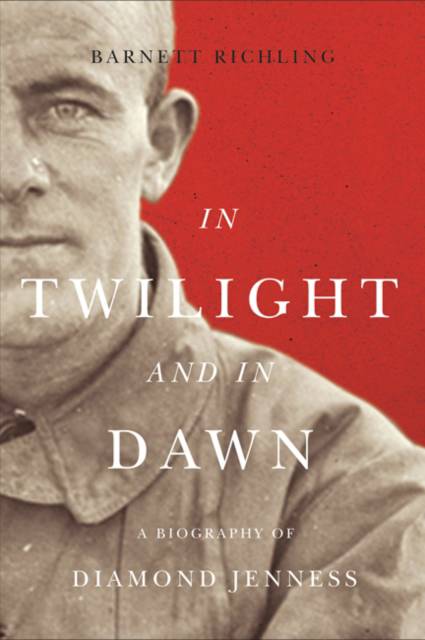
En raison d'une grêve chez bpost, votre commande pourrait être retardée. Vous avez besoin d’un livre rapidement ? Nos magasins vous accueillent à bras ouverts !
- Retrait gratuit dans votre magasin Club
- 7.000.000 titres dans notre catalogue
- Payer en toute sécurité
- Toujours un magasin près de chez vous
En raison de la grêve chez bpost, votre commande pourrait être retardée. Vous avez besoin d’un livre rapidement ? Nos magasins vous accueillent à bras ouverts !
- Retrait gratuit dans votre magasin Club
- 7.000.0000 titres dans notre catalogue
- Payer en toute sécurité
- Toujours un magasin près de chez vous
51,95 €
+ 103 points
Description
When New Zealand-born and Oxford-educated anthropologist Diamond Jenness set aside hopes of building a career in the South Pacific to join Vilhjalmur Stefansson's Canadian Arctic Expedition, he had little idea of what lay ahead. But Jenness thrived under the duress of that transformational experience: the groundbreaking ethnographic work he accomplished, recounted in People of the Twilight and in Dawn in Arctic Alaska, proved to be a lasting contribution to twentieth-century anthropology, and the foundation of a career he would devote to researching Canada's first peoples. Barnett Richling draws upon a wealth of documentary sources to shed light on Jenness's tenure with the Anthropological Division of the National Museum of Canada - a forerunner of the Canadian Museum of Civilization - during which his investigations took him beyond the Arctic to seven First Nations communities from Georgian Bay to British Columbia's interior. Jenness was renowned as a pre-eminent scholar of Inuit culture, but he also stood out for the contributions his field work made to linguistics, ethnology, material culture, and Northern archaeology. His story is also an institutional one: Jenness worked as a public servant at a time when the federal government spearheaded anthropological research, although his abiding commitment to the first peoples of his adopted homeland placed him at odds with Ottawa's approach to aboriginal affairs. In Twilight and in Dawn is an exploration of one man's life in anthropology, and of the conditions - at the museum, on the reserves, in society's mainstream, and in the world at large - that inspired and shaped Jenness's contributions to science, to his profession, and to public life. An informative study of the evolution of a discipline focused through the life of one of its leading practitioners, In Twilight and in Dawn is an illuminating look at anthropological thought and practice in Canada during the first half of the twentieth century.
Spécifications
Parties prenantes
- Auteur(s) :
- Editeur:
Contenu
- Nombre de pages :
- 440
- Langue:
- Anglais
- Collection :
Caractéristiques
- EAN:
- 9780773539815
- Date de parution :
- 01-10-12
- Format:
- Livre relié
- Format numérique:
- Genaaid
- Dimensions :
- 163 mm x 239 mm
- Poids :
- 816 g

Les avis
Nous publions uniquement les avis qui respectent les conditions requises. Consultez nos conditions pour les avis.






